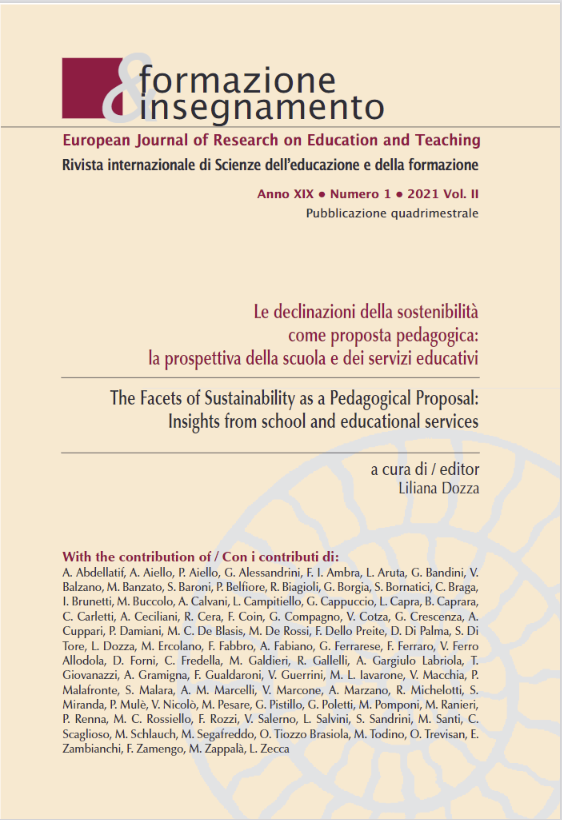Unaccompanied minors at the time of covid-19: does digital technology strengthen or weaken relationships?
DOI:
https://doi.org/10.7346/-fei-XIX-01-21_44Abstract
The global Covid-19 pandemic severely affected adolescents, disrupting their habits and limiting their social interactions, so important in this age of development. Even more difficult was the condition in which unaccompanied foreign minors faced this period: in a foreign country, far from their families, often closed in residential communities. Questions therefore arose: how did they live this period? Did they maintain contact with family, friends and school? Was comunication technology sufficient to preserve them from the feelings of loneliness and depression described by research? The answers were obtained through a questionnaire answered by the young people attending the CPIA in Venice. Most of students declared to have changed their habits in communication with the main reference figures in their lives. In particular, friendships proved to be fragile, family connections were stable and school revealed its potential as a reference point. It can therefore be said that technologies proved to be a fundamental tool for maintaining the relationships of these young people, despite any situations of economic disadvantage.
Downloads
Published
How to Cite
Issue
Section
License
Copyright (c) 2021 Pensa MultiMedia

This work is licensed under a Creative Commons Attribution 4.0 International License.
Formazione & insegnamento is distributed under Attribution 4.0 International (CC BY 4.0).
For further details, please refer to our Repository & Archiving Policy, as well as our Copyright & Licensing Terms.





